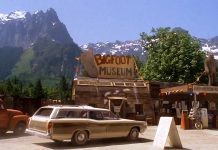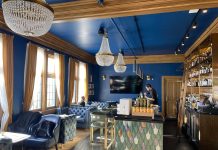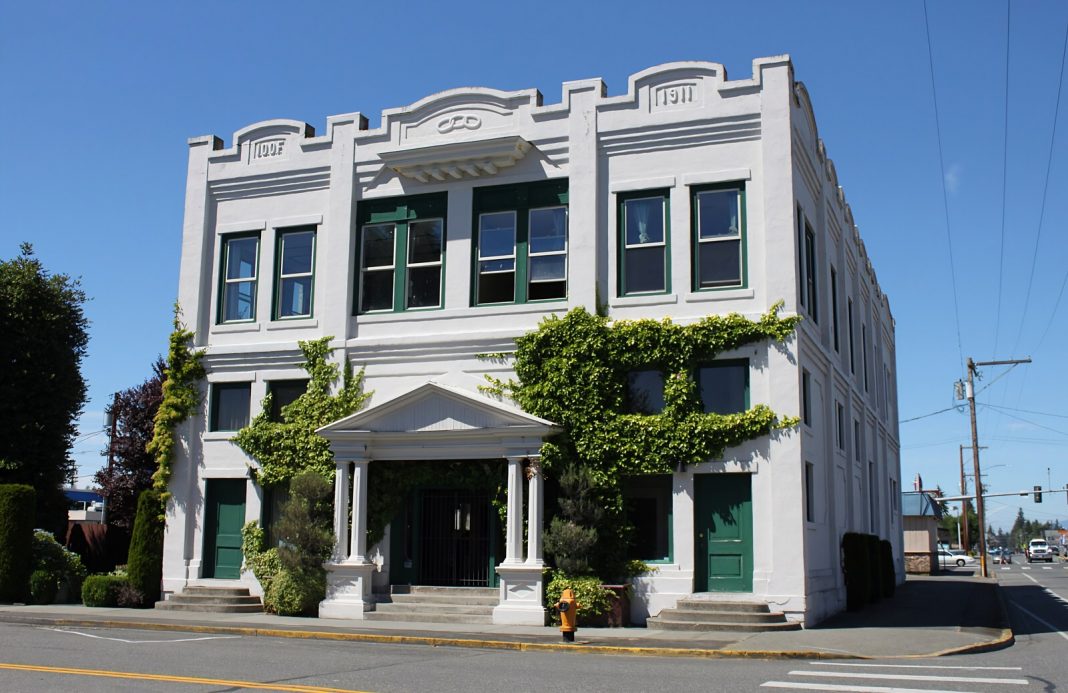From the gaslit stage of yesteryear, where vaudeville acts captivated audiences, to the fairy-lit stage of today, casting a soft, romantic wedding glow, the Marysville Opera House has witnessed the evolution of entertainment, blending timeless charm with contemporary celebrations. Once the centerpiece for the town’s cultural heartbeat, this historic gem has gracefully evolved over the decades and still today, the Marysville Opera House continues to enchant the masses, offering a unique blend of history and modern elegance as it continues to graciously host those unforgettable events you won’t want to miss!
Building the Foundations of Fame for the Marysville Opera House
The foundation of what would become the Marysville Opera House was laid in 1898 with the construction of a wooden meetinghouse by the local Independent Order of Oddfellows Lodge. However, a tragic fire in 1910 leveled the building, and shortly after that, it was decided that a new building would be erected as a replacement venue, using a much less flammable material.
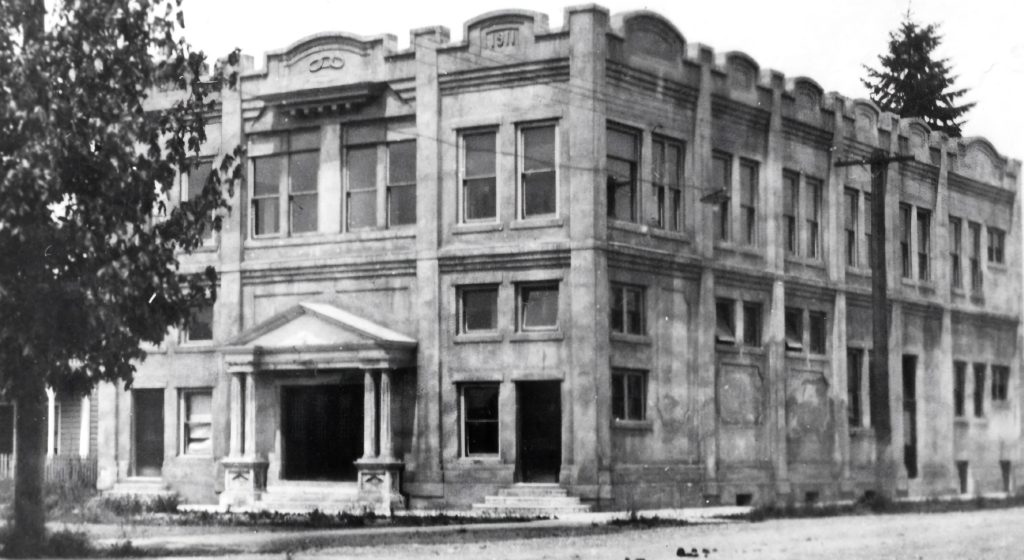
The following year, local contractor A.E. Heider constructed the new opera house for $20,000—a substantial sum equivalent to $663,000 in today’s currency. The cornerstone was laid on March 26, 1911, and the building was completed by August of that same year. Designed to accommodate the city’s growth and serve as a venue for both social events and touring performances, this innovative structure was one of the first in Snohomish County to utilize poured concrete, a departure from traditional timber or masonry construction. It would continue to serve as the Oddfellows’ Marysville lodge until they disbanded in 1966.
The Marysville Opera House Leads a Colorful Life of Entertainment
Following the Oddfellows’ departure in 1966, the Opera House embarked on a colorful journey. The once-grand venue transitioned into a variety of unexpected roles. It served as a silent movie theater, a roller skating rink, and even a shooting range, as the basement became a unique practice space for marksmanship enthusiasts at one point.
The building also maintained its connection to the community, hosting local politics and even serving as the site where early voters approved Prohibition. It remained a popular venue for live performances, though opera was never a staple. Instead, it became a stage for a diverse range of entertainment, from vaudeville shows to concerts by rising stars like Bing Crosby.
Despite its storied past and vibrant present, the Opera House faced challenges in the latter half of the 20th century. In the 1970s and 80s, it was repurposed as a furniture store and a disco nightclub. While these ventures showcased the building’s adaptability, they also marked a period of decline. Recognizing its historical significance, the Marysville Fine Arts Committee successfully listed the Opera House on the National Register of Historic Places in 1982. However, efforts to fully restore the building were hindered by financial constraints.
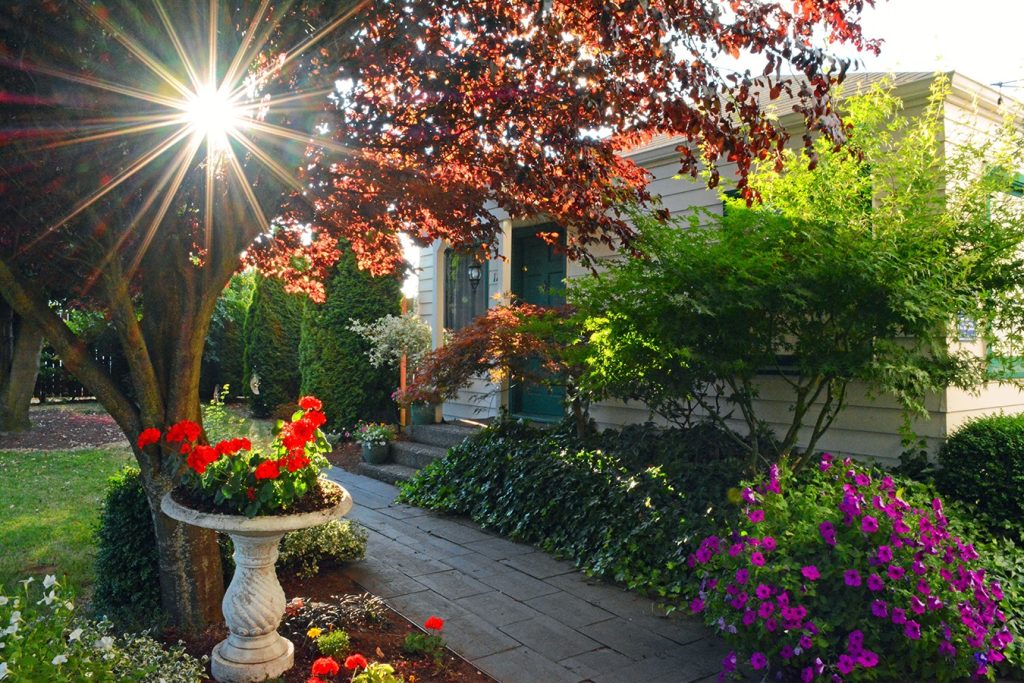
The Williams Family Leases the Marysville Opera House
When the Williams family began leasing the building in 1998 from the City of Marysville, it was a far cry from its former glory. The once-elegant venue had fallen into disrepair, its original beauty obscured by layers of 1980s disco décor brought on by the building’s most recent endeavor as the nightclub Cheetahs. The interior was a shocking shade of Pepto-Bismol pink, holographic wallpaper obscured much of the original woodwork in a truly bizarre fashion, and a leaking roof seemed as if a cry for help from the building itself.
Despite the opera house’s dilapidated state, the Williams family recognized its potential. They embarked on a labor of love, peeling back the layers of neglect to reveal hidden architectural treasures. The restoration process uncovered stunning architectural details, including pressed tin ceilings, hardwood fixtures, and a charming hat-check window.
After some much-needed TLC from the Williams family, the Marysville Opera House reopened to the public in 2001. For the next decade, they ran an event business out of the hall, and it quickly became a beloved private wedding venue that it is more commonly known for today.
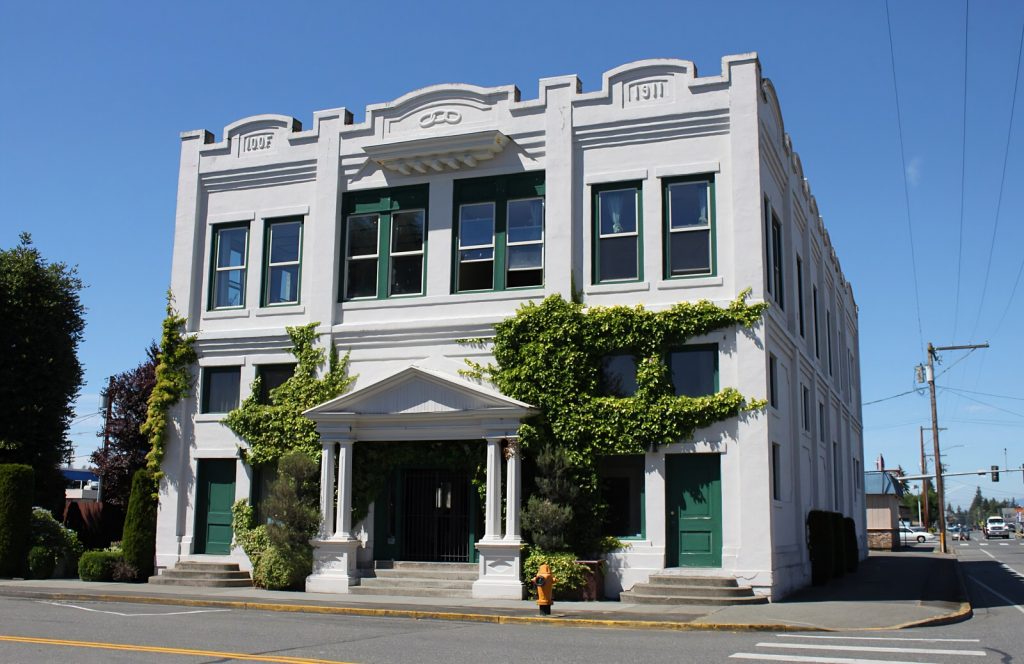
The City of Marysville Preserves the History of the Marysville Opera House While Entertaining the Community
When the City of Marysville came looking for a venue to help revitalize the arts in 2016, they found themselves naturally knocking on the doors of the Marysville Opera House after witnessing their historic transformation. The city entered a sole tenancy agreement with the Williams family, allowing them to continue managing the space while they hosted events out of the opera house. As part of the agreement, a second renovation was completed, which included a fresh coat of paint, the installation of energy-efficient LED lighting, and the addition of new artwork.
With the city’s support, the Opera House experienced a resurgence. It now hosts a diverse range of events, from concerts and theater performances to community gatherings and art exhibitions. In 2017 alone, the venue hosted an impressive 138 events, showcasing its versatility and appeal.
Recognizing the Opera House’s historical and cultural significance, the City of Marysville took a significant step in 2018 by purchasing the building for $1.44 million. This acquisition solidified the city’s commitment to preserving the Opera House and ensuring its continued vitality as a community hub.
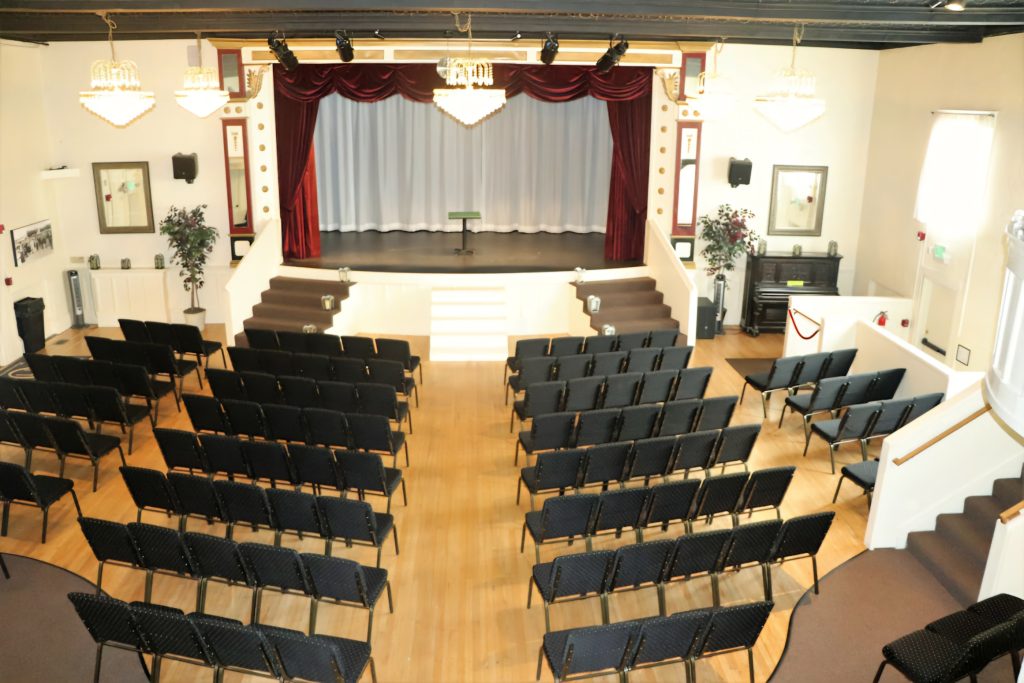
The Marysville Opera House Continues to be a Focal Gathering Point for the Snohomish Community
Today, the Marysville Opera House continues to shine as a cultural gem. This historic venue offers a unique blend of old-world charm and modern amenities, making it an ideal location for various events. Whether you’re planning a wedding, corporate event, or community gathering, the Opera House provides a stunning backdrop for unforgettable moments.
The building’s elegant features, including a magnificent ballroom, a charming mezzanine, and a picturesque balcony, create a timeless atmosphere. The venue’s versatile space can accommodate a variety of seating arrangements, from intimate gatherings to large-scale events. Additionally, the Opera House offers a caterer’s kitchen, a bar service area, and a stage with a dressing room, making it a convenient and functional space for event planners.
As the Opera House continues to evolve, it remains committed to preserving its rich history while embracing the future. By hosting a diverse range of events, from live performances and art exhibitions to weddings and corporate functions, the Opera House ensures that its legacy endures for generations to come.





